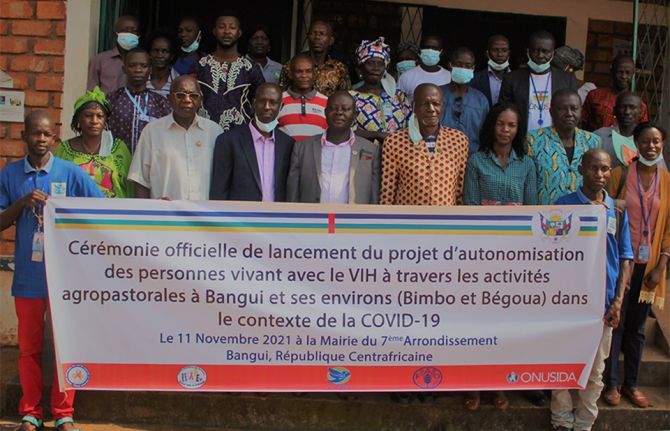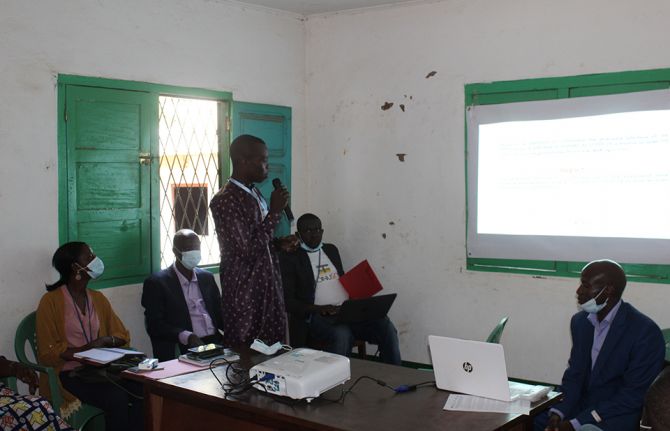



Feature Story
Supporting people living with HIV with income generation in the Central African Republic
17 November 2021
17 November 2021 17 November 2021On 11 November, a project to support the empowerment of nearly 400 people living with HIV through training and involvement in agropastoral activities was launched in the seventh arrondissement of Bangui, Central African Republic.
According to Joseph Tagbale, the Mayor of the seventh arrondissement, “This project is timely and comes as a breath of fresh air, as people living with HIV have paid a heavy price during the COVID-19 pandemic, firstly because of their high risk of infection due to their weak immune systems and secondly because of the collapse of their means of subsistence due to repeated confinements.”
The Multi-Partner Trust Fund granted the UNAIDS Country Office for the Central African Republic US$ 150 000 to support activities for people living with HIV in the context of COVID-19. These activities were chosen in collaboration with the Comité National de Lutte Contre le Sida (CLNS), the Ministry of Health and the Central African Network of People Living with HIV (RECAPEV) and will be implemented by the United Nations Food and Agriculture Organization and the international nongovernmental organization Solidarité pour la Paix et le Développement Intégré.
The activities consist of agropastoral activities (small-scale livestock farming and other farming activities), the production of face masks and income-generating activities, such as sewing, catering and the sale of soap and kitchen utensils. All these activities will enable people living with HIV to sustainably meet their needs and better adhere to their antiretroviral therapy, since due to the COVID-19 pandemic many people living with HIV have stopped taking their treatment because of problems in accessing food. “COVID-19 has destroyed all our progress in adherence to treatment, and people living with HIV have a lot of difficulty feeding themselves, as many are unemployed,” said Bienvenu Gazalima, the National Coordinator of RECAPEV.
The income-generating activities will be supported in four arrondissements of Bangui and in two surrounding communes, Bimbo and Bégoua, which were selected because they have large numbers of people on antiretroviral therapy.
Throughout the project, peer educators will educate people living with HIV on treatment adherence and other health issues, such as COVID-19 prevention and vaccination. Emphasis will be placed on involving women in the activities. “I am delighted that women living with HIV are so strongly integrated in this project, because it is they who have paid the highest price during this crisis,” said Marcelline Seremandji, adviser to civil society associations at CLNS.
“In the Central African Republic we are witnessing how structural inequalities and lack of income have direct impacts on health and HIV outcomes. The lower someone’s social and economic status, the poorer their health is likely to be. Addressing food insecurity and malnutrition, keeping adults earning an income and keeping children in school helps to ensure the efficacy of HIV treatment,” said Marie Engel, the Director, a.i., of the UNAIDS Country Office for the Central African Republic.



